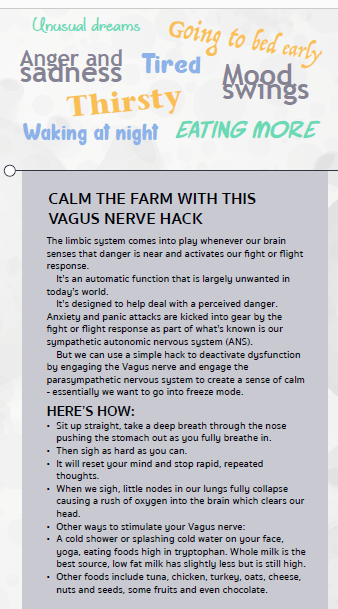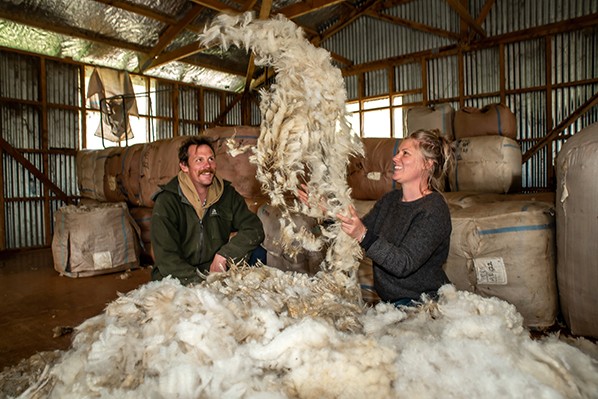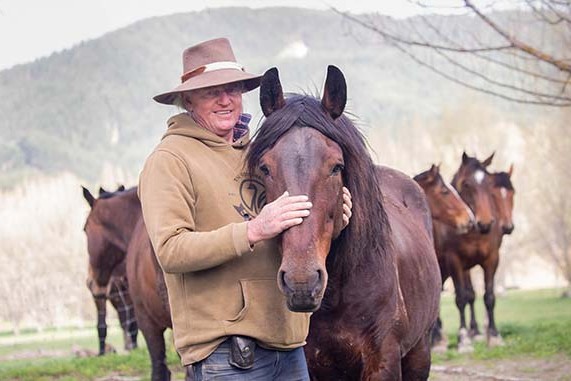Anxiety levels onfarm will be rising for many as the likelihood of Covid-19 breaching the farm gate increases.
Those feelings are normal but they don’t have to be overwhelming.
Former police crisis negotiator, Lance Burdett runs mind health coaching company WARN International – WARN stands for wellness, awareness, resilience and negotiation.
For many, Covid-19 has been out there in the distance, he says. We’ve known it’s there but it hasn’t been something we’ll encounter in daily life on the farm.
“You’ve been able to hear the guns in the distance but now they’re getting closer and there’s a sense the battle is coming,” he says.

That sense of anticipation, even if it’s at a subconscious level, will be affecting what’s happening in our brains.
The key, Lance says, is to first understand that’s normal.
“It’s how we’re wired, what we’re supposed to do.
“As a species we’re subconsciously continuously looking for future risk which is always based on our past experiences, our timeline of events.
“Whenever we face what our brain perceives as a danger and we go into fight-or-flight mode, our brain puts a marker in our long-term memory as a reference point for the future should something similar happen again.
“None of us have been through anything quite like this pandemic before so our brain is still trying to work out a response to this new danger.
“Our brain doesn’t enjoy this uncertainty, it views it as adversity, a dangerous situation that it needs to find an answer for.
“So, although we don’t realise it, we’re constantly in a fight or flight mode to a greater or lesser degree.”
Even if we don’t consciously feel anxious there can be emotional and behavioural signs we’ve been living with this heightened sense of impending danger, he says.
Signs such as:
- Being thirsty even though we’ve been drinking a lot of water.
- Eating more than usual and craving sweet treats or fatty food.
- Feeling more tired, even after a great night’s sleep.
- Having mood swings, inwardly and outwardly. Anger and sadness washing over us in waves.
- Wanting to go to bed an hour or so earlier than normal.
- Having unusual dreams and waking up three or four times when normally we slept through the night.
Simply recognising what’s behind these emotions and behaviours can help to reduce them but Lance has some tips on how to actively curb that fight-or-flight response too.
“Run to the fire – instead of letting Covid-19 anxieties sit out there somewhere in the distance, confront them.
“Look at what it is you’re afraid of and what you can do about it. What are the actions you can take?”
If you’re vaccinated, tell yourself you’ve done what you can to protect yourself and the people around you.
Have a plan for what you’ll do on the farm and at home if there’s a positive case in your community or on your farm.
“Having a plan, writing it down and talking it through with others means you’re taking action,” he says.
That means it’s not sitting in the subconscious anymore, you’ve taken it out, looked at it and dealt with it. Then when you hear of a case in your area and you feel the anxiety start to rise, you tell yourself – “We’ve worked through this, we have a plan, there’s nothing more I can do, it’s okay.”
If you’re someone who is glued to the 1 o’clock announcements and daily case numbers, watching your phone for the latest updates and stories, try to wean yourself off that.
It’s important to be informed and know what the rules are but the hype and click-bait headlines will just feed your fight-or-flight response, he says.
Lance says it’s also important to deal with emotions and negative thoughts rather than pushing them down.
A technique used to help people get over the feelings associated with a bad experience can also help deal with current emotions. Some of the fear and anxiety may be associated with that initial fear we had in 2020 when Covid arrived in New Zealand and the country was plunged into level four lock down.
“Just as the brain holds on to memories of negative events, designed to do so to keep us safe from harm, it also holds on to the feelings and emotions which are attached to that memory.
“As that nervous, sickly feeling arrives, get curious with it.
“Think to yourself – Hmmm what are you doing here? What are you trying to tell me?
“You could go further and welcome it back, focus on the physical sensation, where it is, how it feels.
“By getting curious and welcoming the thought, feeling or emotion, our subconscious simply lets go.
“We remove the negative attachment, we embrace the fear and our brain says – nothing to see here, let’s move on.”
And that might just be the motto we need too.
“We all just want to get on with life and if we follow the rules, do what’s sensible and use some of these tools when the old anxiety pops up we’ll be able to get on with it and see life as normal.”





